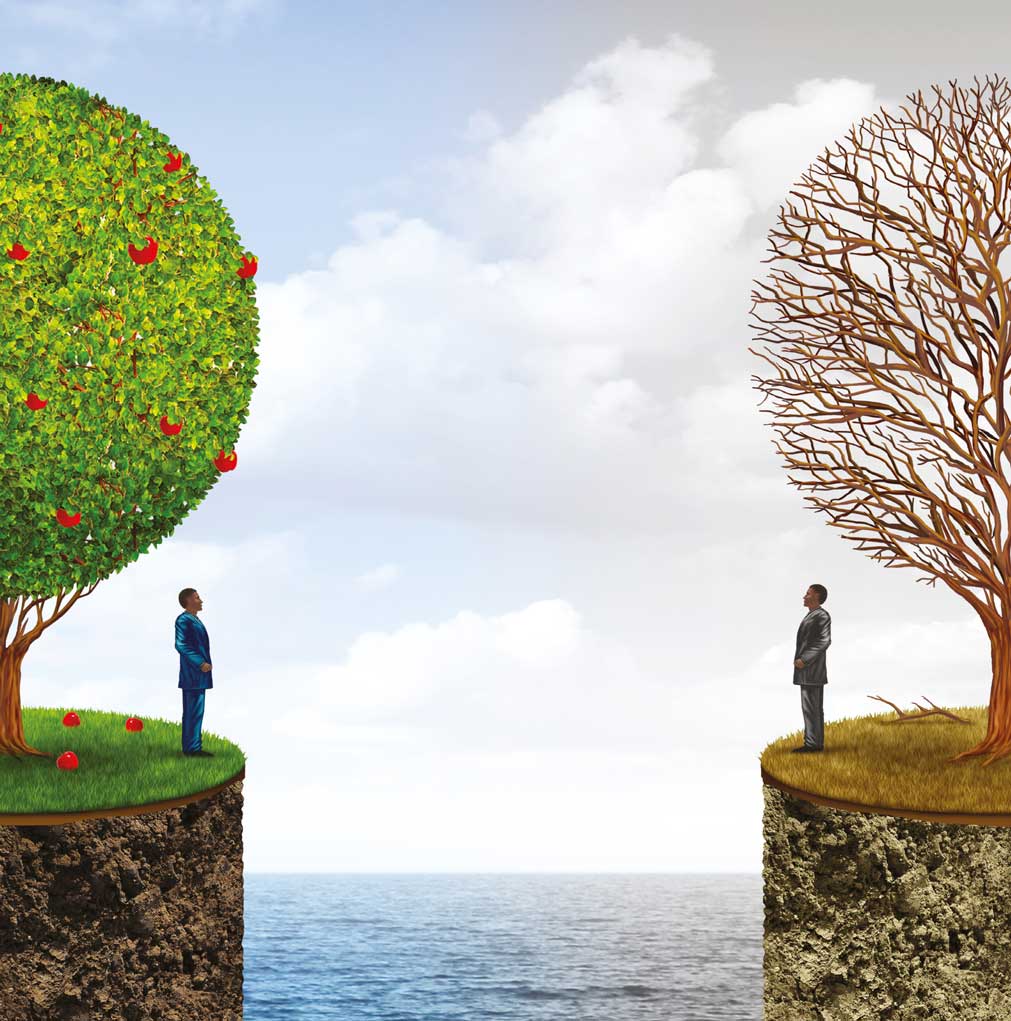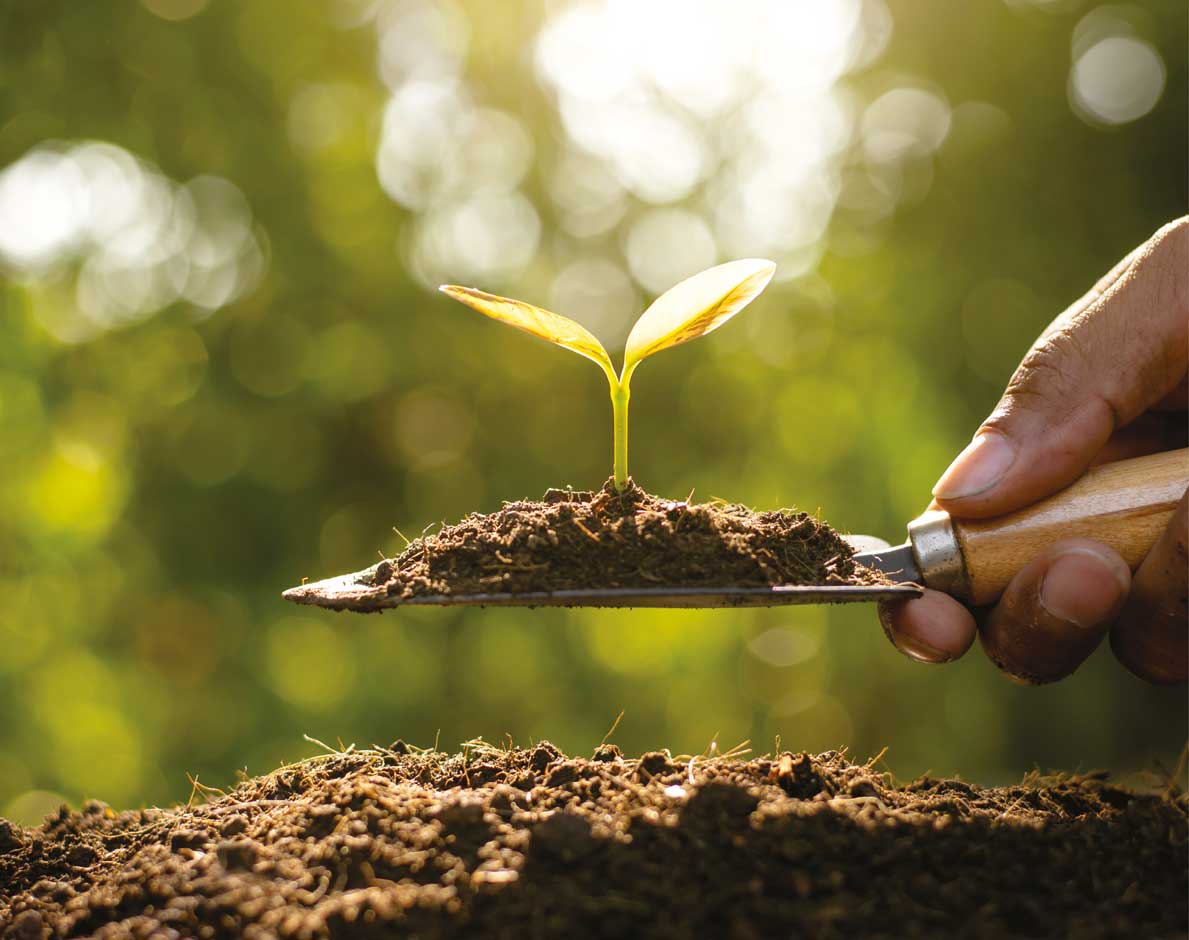SOCIOECONOMIC SUSTAINABILITY
Propping up the Backbone
Deshal de Mel emphasises the need to support Sri Lanka’s MSME sector to achieve economic sustainability
Sustainable development comprises economic growth, social equality and environmental conservation. The backbone of Sri Lanka’s economy is the micro, small and medium enterprise (MSME) sector; and the greatest change needs to happen here for a sustainable impact that will be felt by the nation as a whole.
 “Among the many challenges faced by MSMEs, the pandemic has disrupted access to markets and supply chains,” explains Deshal de Mel – a Research Director of Verité Research – while commenting on the impact of COVID-19.
“Among the many challenges faced by MSMEs, the pandemic has disrupted access to markets and supply chains,” explains Deshal de Mel – a Research Director of Verité Research – while commenting on the impact of COVID-19.
As for the best way forward to support the sector, he says: “Restoring access to these markets, consciously making efforts to include MSMEs in larger businesses’ value chains, and supporting them with the necessary know-how to reach the quality and consistency to retain their roles in those value chains will be useful interventions.”
As an economist, de Mel sees opportunities that the sector could leverage on: “Once the initial challenges of access to affordable finance, land and other resources are overcome, scaling up requires gaining a foothold in increasingly larger markets.”
 “Whether in manufacturing or services, a key requirement is developing and maintaining consistency in the offering,” he notes. However, he also points out that “this can be quite challenging for most SMEs, and is where quite a few would stumble and fall short.”
“Whether in manufacturing or services, a key requirement is developing and maintaining consistency in the offering,” he notes. However, he also points out that “this can be quite challenging for most SMEs, and is where quite a few would stumble and fall short.”
Despite this, de Mel is optimistic about talent and innovation in the country. “In Sri Lanka, you find oases of innovation. Some Sri Lankan firms provide goods and services to the top global businesses and brands across several sectors, from digital services and apparel, to food and beverage, and logistics,” he observes.
De Mel is hopeful that the trend of these success stories being outliers and not the norm will reverse: “A culture of innovation is needed to shift this from being outliers to becoming the norm. That in turn requires changes in several spheres from education to financing practices and sociocultural norms.”
 The agriculture sector provides an extensive gateway into innovation and tech, to ensure economic sustainability for the agri community and sustainability of cultivation techniques.
The agriculture sector provides an extensive gateway into innovation and tech, to ensure economic sustainability for the agri community and sustainability of cultivation techniques.
De Mel opines: “Economic sustainability requires producing agri products that can derive sustained value. Farmers are often locked into products with high levels of competition, have little control over pricing or offer products that are subject to supply gluts and price controls. It follows that this does not provide reliable and robust income streams.”
“The outcome of several decades of such practices is a sector that employs around 28 percent of the labour force but generates approximately eight percent of GDP,” he observes, continuing: “Therefore, shifting to products of higher value – typically those with export markets – can be a path to fulfilling the objective of economic sustainability.”
In de Mel’s view, it’s not necessarily the case that all farmers must become exporters; but it is possible for more to join the value chains of larger exporters and benefit from the higher value creation along the supply chain.
Certain sustainability projects should be identified as essential to enhancing MSMEs livelihoods and lives. De Mel elaborates: “Overall efforts to create an ecosystem in a larger value chain can certainly help improve livelihoods. Within these ecosystems, providing extension services, supporting the development of know-how to ensure consistency in quality and output, and assisting SMEs in obtaining GAP certification where feasible are some measures that can have long-lasting impacts.”




